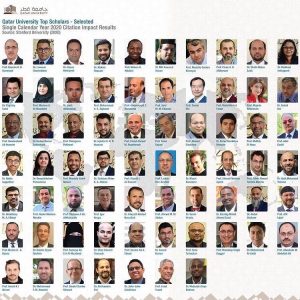
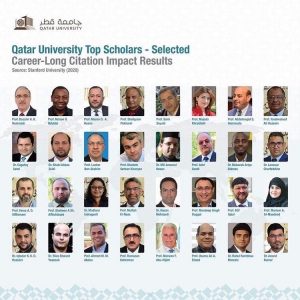
Home » Achievements » Faculty (Page 6)
August 15, 2022 / Leave a comment
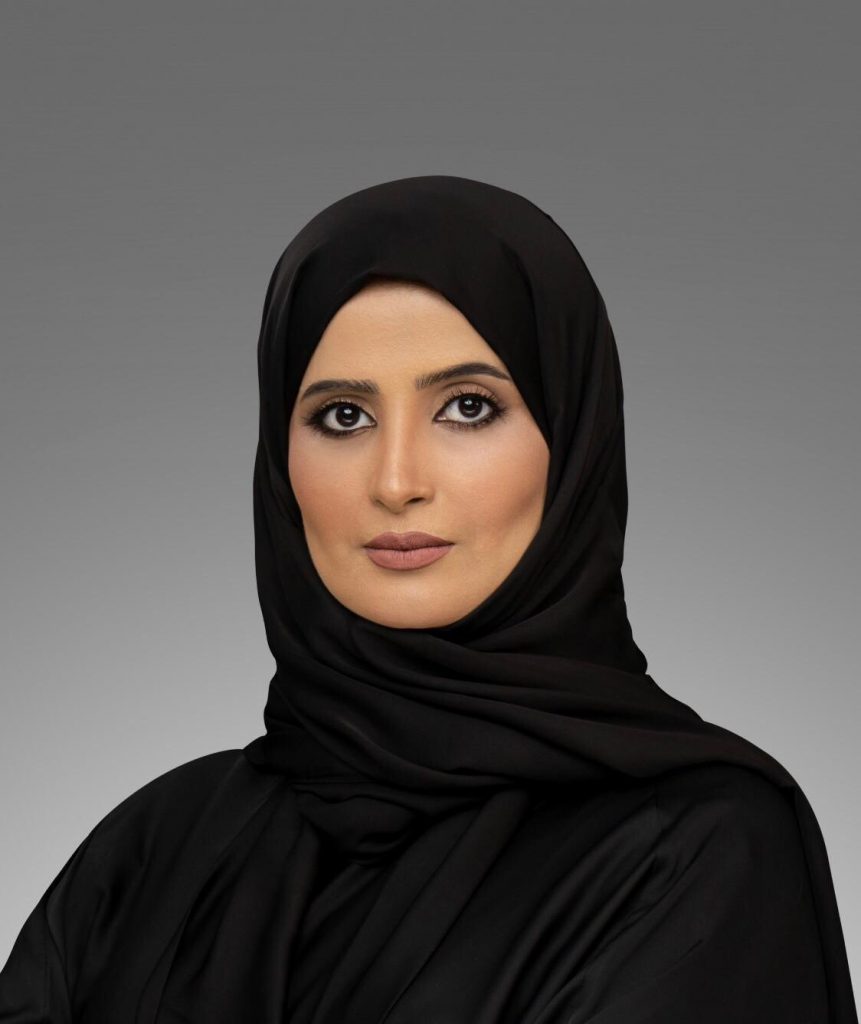
Dr. Noora Fetais
Our faculty member, Dr. Noora Fetais, was awarded the Qatar University Outstanding Faculty Service award for AY 2021-2022. The award is established to honor and recognize faculty members who have demonstrated excellence in service to QU and the community at large.
The faculty service is a cornerstone of faculty duties at QU and represents one of the pillars of QU strategic plan. The type and scope of university services is clearly defined in QU Mission and Key Performance areas, where the university has pledged to address relevant local and regional challenges, advance knowledge, and contribute actively to the needs and aspirations of society. Recognizing the importance of outstanding faculty services and its significance in meeting the University’s mission, the Office of the Vice President for Academic Affairs instituted Qatar University Outstanding Faculty Service Award. Congratulations Dr. Noora for the award!
August 15, 2022 / Leave a comment
A major cluster grant titled “The Future of Digital Citizenship in Qatar: A Socio-Technical Approach” from the Qatar National Research Fund (QRNF) was awarded to HBKU, Qatar University, and many other partners to lead a multi-entity, interdisciplinary project on digital citizenship in the Arab region.
The $3.8m four-year grant was awarded under QRNF’s National Priorities Research Program-Cluster (NPRP-C) and enables collaboration between 10 entities from academia and industry.

Dr. Raian Ali, Professor in Information and Computing Technology at HBKU, will lead the cluster as program director with six projects that will focus on building an observatory for trends and common topics on social media, web-based tools, educational materials, and research into digital literacy and well-being, gender equity, social inclusion, behavior-based approaches to security and safety, detecting and limiting propaganda and other areas.
Qatar University is leading two projects by Dr. Khaled Khan and Dr. Osama Halabi from the Computer Science and Engineering Department, College of Engineering.
The project led by Dr. Khaled Khan is titled ”Security and Safety as a Behavior”. It is a collaborative project between Qatar University, HBKU, and Bournemouth University. The project will research a behavior-based approach to security and safety. Investigate hacking and social engineering techniques that are successful in the Arab world and propose socio-technical approaches to enhance resilience to manipulators online and encourage reporting. The solutions are based on the approaches of behavior rehearsal, simulation, and social norms.
The project is led by Dr. Osama Halabi is titled “GESI by Design”. It is a collaborative project between Qatar University and HBKU. The project will study how to mitigate issues related to Gender Equality and Social Inclusion (GESI) in social media in Qatar and the Arab world and increase awareness of them. The team will use digital nudging techniques based on annotation and a bespoke set of reactions and emojis and devise tools to facilitate a structured dialogue. The aim is to encourage a more civilized and inclusive language and interaction.
The cluster is supported by a wide range of key stakeholders in Qatar including the Ministry of Communication and Information Technology, Qatar National Library, Msheireb Museums, Qatar Finance Centre, and Fadaat Media, who will provide facilities and enrich the knowledge transfer.
April 14, 2022 / Leave a comment
Our CSE department was awarded 2 National Priorities Research Project-Standard (NPRP-S) grants from Qatar National Research Fund (QNRF) in their 14th cycle. This cycle was so competitive that Qatar University was awarded only 14 projects; 5 of which are awarded to the College of Engineering. The two awarded projects are led by Dr. Tamer Elsayed and Dr. Abdulla Al-Ali.
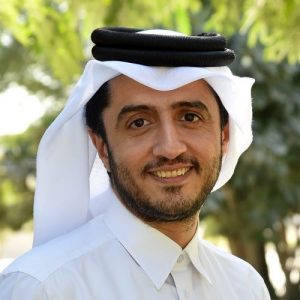
The project led by Dr. Abdulla Al-Ali is titled “Defense Against Hardware Intrinsic Attacks in Resource-Constrained COTS based Traditional and Futuristic Artificial Intelligence of Things (AIoT).” It is a collaborative grant between QU and Tennessee Tech University in collaboration with the Ministry of Interior, Qatar. The PIs from QU are Dr. Abdelkarim Erradi and Dr. Uvais Qidwai, while the Tennessee Tech University PIs are Dr. Syed Rafay Hasan, Dr. Tarek Elfouly and Dr. Terry Guo. The project revolves around three main objects: (a) The development of hardware intrinsic security mechanisms for Resource Constrained (RC) Commercial off the shelf (COTS) based traditional IoT systems, (b) Investigating the vulnerability of hardware intrinsic security mechanisms for RC-COTS based futuristic AIoT system, and (c) developing a testbed implementation to examine real world scenarios to make the proposed work technology ready.
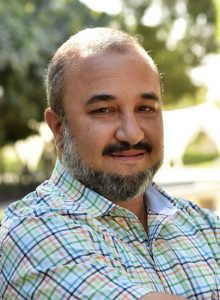
The project led by Dr. Tamer Elsayed is titled “Dimension-Specific Automated Scoring of Arabic Language Writing Proficiency“. The project’s team is entirely based in Qatar, having Dr. Houda Bouamor from CMU-Q and Dr. Walid Massoud from QU, with complementary expertise in Arabic natural language processing, information retrieval, applied machine learning, and psychometrics and standardized testing. The goal of the project is to build an automated scoring system for the quality of students’ writing abilities (on different aspects) in standard Arabic exams (similar to IELTS or TOEFL English exams). The proposed system, which is potentially the first of its kind in the Arab region, will potentially help in assessing the students’ writing proficiency in Arabic exams offered at QU as well as several high schools at Qatar Foundation. The project is funded for 3 years.
March 31, 2022 / Leave a comment

Prof. Abdelaziz Bouras participated as speaker in the The Smart City Expo Doha 2022, organized by TASMU and the Ministry of Communications and Information Technology in Msheireb, Doha, on 29th and 30th of March. He was one of the speakers of the panel titled “Unleashing the potential of disruptive technologies in urban management”. The panel addressed how different enabling technologies, such as artificial intelligence, blockchain, cloud computing or Internet of Things, will depict the transformation of urban management in the coming years and decades. These trends point out potential gains in terms of robustness, security, flexibility, adaptability, and reliability of public infrastructures running in cities and services delivered to urban dwellers. Unleashing this potential is not only a matter of technological availability and readiness, but also a mix of factors related to project financing and management, public procurement procedures, public-private collaborations, and partnerships, etc. The panel also explored the landscape of hurdles and barriers, and how to overcome them to turn promises of disruption into reality.
January 19, 2022 / Leave a comment


November 7, 2021 / Leave a comment

Dr. Tamer Elsayed has received a “Best Reviewer Award” at the 30th International Conference on Information on Information and Knowledge Management (CIKM) 2021. The award was announced during the conference that was held online last week. The award was given to 30 reviewers out of more than 1,600 reviewers, according to the General Chairs of the conference.
Congratulations Dr. Tamer for the recognition!
